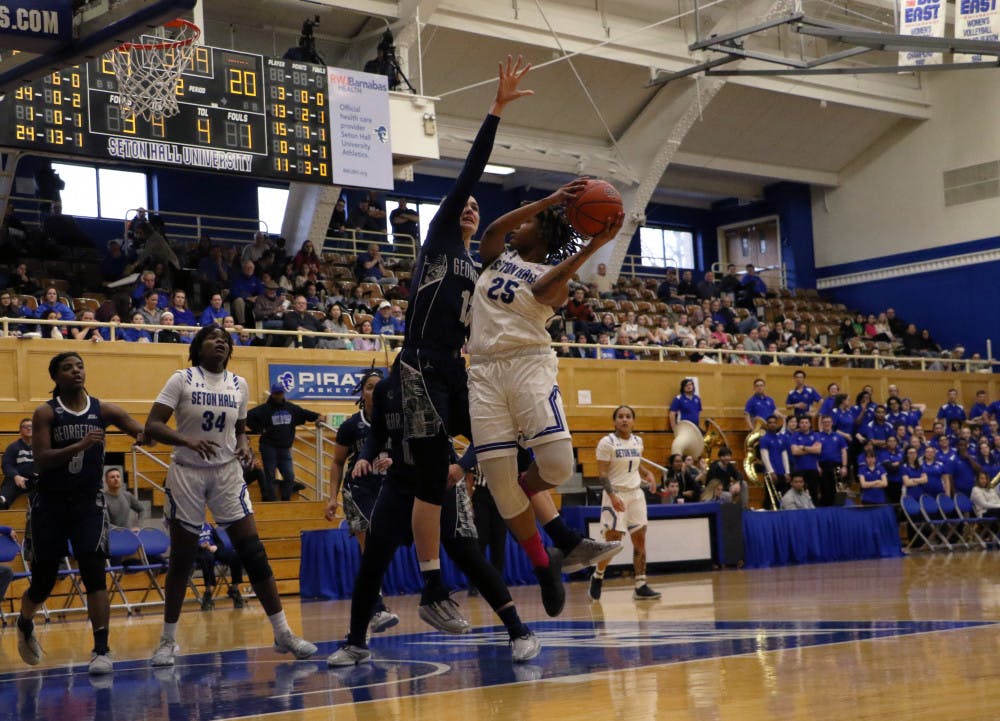Several members of the Seton Hall community spoke to The Setonian about the recent changes to Seton Hall's administration, as well as about the continuing presidential search.
On July 1, 2010, Dr. A. Gabriel Esteban began his year-long term as interim president of Seton Hall University.
This appointment follows the stepping down of Msgr. Robert Sheeran who served as president of Seton Hall for 15 years.
"I am sorry to see him go, 15 years is a long time and Msgr. Sheeran has become synonymous with Seton Hall," said Ann Szipszky, parking services manager and a former Seton Hall student, in an e-mail. "I wish him nothing but the best as he moves on to the next chapter in his life."
Szipszky graduated from Seton Hall in 1986 with a Bachelor of Science degree in Computer and Information Sciences.
During her time at Seton Hall, Szipszky said her best memories involve being a student. She also added that Seton Hall has changed greatly since her time as a student, especially under Sheeran's leadership.
Some of the changes she has noticed include more housing options, the parking deck, and the fact that Walsh Library stands where there was once a parking lot. Student recruitment has also improved significantly, according to Szipszky.
"Seton hall is just getting bigger and better," Szipszky said.
Although Szipszky said she really does not know Esteban well, she knows many people who do know him well and are "thrilled" with his appointment.
"I have friends who are members of the faculty and they are thrilled with his appointment and speak very highly of him so I am excited to see what he will do take Seton Hall to the next level," Szipszky said.
Members of the student body are also excited about Esteban's appointment.
"I think that it was a wise decision to appoint Esteban as interim president," said Melissa Boege, president of the Student Government Association, in an e-mail. "As Provost, he's obviously very aware of Seton Hall's needs and challenges."
Boege also added she was "personally really excited" to work with Esteban, as he has already asked to meet with the SGA executive board in the fall.
Faculty members agree with the sentiment that Esteban is a great pick for interim president.
"Dr. Esteban is a tireless advocate for the academic mission of Seton Hall. He will follow Msgr. Sheeran with grace and, at the same time, provide the sort of leadership that is vital for faculty and students," said W. King Mott, associate professor of political science and women and gender studies, in an e-mail. "Students and faculty alike will be advantaged by his presidency."
Members of the Seton Hall community are hoping that Esteban can point the university in the right direction.
"I hope that Esteban is able to set the tone for the new president and identify what areas of the university really need focus and attention in the coming years," said Boege.
Szipszky has high hopes for Esteban's presidency.
"Anyone who knows me knows that I want nothing but the absolute best for Seton Hall which means being second to none both academically and athletically," Szipszky said. "I would honestly like to see Seton Hall as a Tier 1 school academically and in the top 25 in the Learfield Sports Director's Cup. Whatever Dr. Esteban can do to move us in that direction I would be absolutely thrilled with."
As Esteban's presidency is temporary, the presidential search is still ongoing, especially since the last presidential candidate, Msgr. Stuart Swetland, withdrew in early June.
Both Boege and Szipszky expressed disappointment with Swetland's withdrawal, stating he was impressive and seemed like a great person to lead Seton Hall.
"Although it was disappointing to hear that he had withdrawn, I think it's best that the university finds a president that is whole-heartedly committed to our community, and that perhaps it simply wasn't meant to be," said Boege.
Szipszky agreed.
"As an alumna I want someone who wants to be here, who wants to be a part of Seton Hall, wants to be a Pirate and someone who bleeds blue," Szipszky said. "The students, most of all, deserve that and nothing less."
Mott described the presidential process as being "a most serious and challenging task" but one that the university can certainly handle.
"The presidential search demonstrated hard work by the Board of Regents and all the constituencies on this campus. It was a national, intensive search, and it yielded an outcome that will inform future decisions related to how to proceed," said Mott. "The Board of Regents is responsible for the appointment of the president; it is a most serious and challenging task. I hope that they open the search to all qualified candidates."
Jessica Sutcliffe can be reached at jessica.sutcliffe@student.shu.edu.





